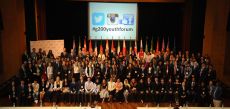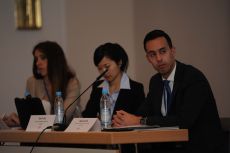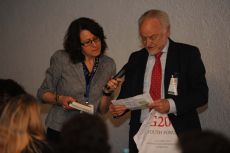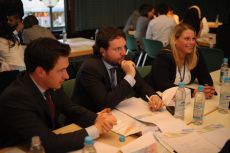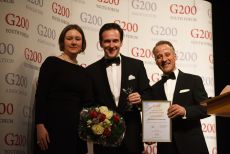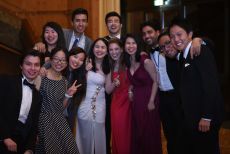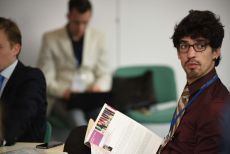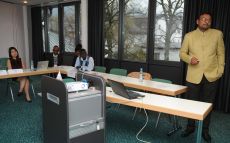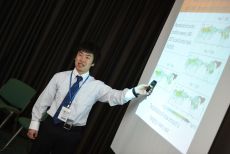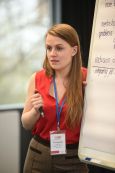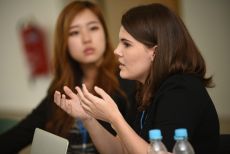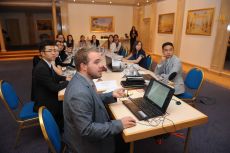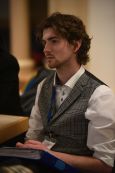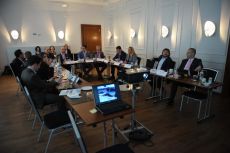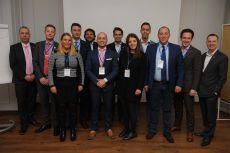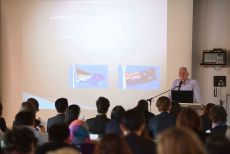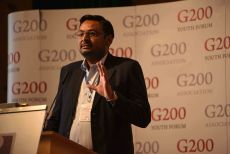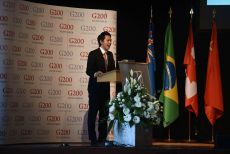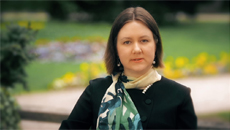Opening Ceremony — Plenary Session
Plenary Session - 'Constructing Happiness'
Every year the G200 Youth Forum has a flavour of happiness. The plenary session gives opportunity for participants to hear from some of the most inspiring and influential experts in the field of happiness.

Most people want to live a satisfying life. Can we help them to achieve that? If so, should we? How can we create greater happiness for a greater number of people?
In the past leaders could only theorize about these questions, but today they can draw on facts. Happiness in the sense of life-satisfaction can be measured and research on the matter is booming. Happiness is a main topic in positive psychology and in happiness economics and the subject figures also in sociology and the health sciences. A sizable body of knowledge has developed and in this plenary session we highlight the findings most relevant for leaders who aim at greater happiness.
The following issues are considered:
- What can leaders do to raise the happiness of their people in
- Nations
- Communities
- Organizations
- What can individuals do to raise their own happiness, to unlock potential, leaders themselves not excepted
Dr. Ruut Veenhoven

Emeritus Professor, Erasmus University, Rotterdam, the Netherlands
Special Professor, North West University, South Africa
Director, World Database of Happiness
Founding Editor, Journal of Happiness Studies
Ruut Veenhoven (1942) is an emeritus professor of social conditions for human happiness at Erasmus University Rotterdam in the Netherlands and currently working at the Erasmus Happiness Economics Research Organization. He is also a special professor at North-West University in South Africa. Veenhoven is director of the World Database of Happiness and a founding editor of the Journal of Happiness Studies
Presentation: The Science of Happiness
For long we could only speculate about happiness, but since short fact-based knowledge on happiness develops. In this talk, I describe this new science of happiness, answering the following questions.
- Who wants knowledge on happiness and why?
- What kind of ‘happiness’ is at stake?
- Can that happiness be measured?
- What are the causes of happiness?
- What are the consequences of being happy or not?
Ms. Nkandu Beltz

Author, Speaker, Director, Ascend Smart Institute, Australia
Nkandu Beltz is the Founder and Managing Director of Centre for Leadership and Management, an award winning leader and Social Pioneer. With a background in Journalism and News Writing, Nkandu loves to have inspired conversations with thought leaders, from interviewing his Holiness the Dalai Lama to running youth workshops in Schools, Universities and Corporate Companies. She teaches young people to unleash their potential and live a balanced life. She will challenge your perception of leadership and communication. Nkandu has lived in four countries and speaks five languages. She will inspire you to strive for greatness and unlock your potential. In her talks, she speaks about the spirit of Ubuntu, an African Philosophy, which embodies the oneness of humanity.
Presentation: Balance! Why your happiness depends on it.
Keynote will focus on: Happiness can be cultivated with internal and external factors. Here we will examine the different layers that contribute to Happiness. Here we look at the hedonism and eudemonia.
The basic individual hierarchy of values in the construction of happiness and maintaining them. But the missions and visions of inspired individuals create better and effective and happy societies. The audience will learn:
1. How to unlock your potential
2. Clarify your vision and mission
3. Happiness can be constructed by balancing the seven areas of life.
Ms. Bridget Grenville-Cleave

Director, Workmad Ltd., London, UK
Lecturer International Masters in Applied Positive Psychology, Anglia Ruskin University, Cambridge, UK
Certified Trainer - Bounce Back Resilience Programme
Bridget is a leading practitioner of Applied Positive Psychology in Europe, having gained a Masters with Distinction from the University of East London in 2007. She now puts Positive Psychology into practice as a trainer, facilitator and consultant in business, education, health and social care sectors. Her first career was in business where she held various senior finance, change management and strategy roles. She is a Fellow of the Chartered Association of Certified Accountants, member of the Chartered Institute of Personnel and Development, and has an MBA from the Open University Business School.
Bridget is passionate about personal, organisational and community development and enabling people of all ages, experience and backgrounds to use Positive Psychology interventions to lead happier, more fulfilling and successful lives. She currently leads the EARN Happiness School in London and has recently launched a well-being app called How’s Your Day?
She is a visiting lecturer on the International Masters in Applied Positive Psychology Programme (iMAPP) at Anglia Ruskin University in Cambridge, specialising in Positive Psychology practice, as well as an advisor and trainer for the Bounce Back! Resilience Programme in schools.
Bridget is author of five books including Positive Psychology: A Toolkit for Happiness, Purpose and Well-Being (2016), 100 Ways to Happiness: Expert Advice to Feed Your Mind, Body and Soul (2015), and 101 Activities for Happiness Workshops (2014). Since 2007 she has written a monthly column, combining the latest research with practical application, for the leading online journal, Positive Psychology News. She is currently co-editing the first book on applying Positive Psychology in sport and physical activity settings, published by Routledge in 2017.
Presentation.
Constructing Happiness: How to Create Stronger and More Resilient Communities.
The communities we live in have a powerful influence on our well-being. Our quality of life depends not just on individual happiness or our access to services, employment, education and leisure opportunities, it also depends on ‘social capital’. In other words, whether we know and trust our neighbours, and whether we have a sense of mutual support and feel that we belong where we live are crucial factors contributing to our happiness. In some places, previously strong social capital has been eroded by economic and social policies, but using the science of positive psychology we are learning how to construct it in a sustainable way.
In the UK’s rural county of Gloucestershire for example, social capital is being created, stewarded by the Barnwood Trust, a charity whose mission is to develop the potential for people to make the most of their lives. Barnwood’s 10 year ‘You’re Welcome’ strategy is focussed on creating social change using asset-based community development - creating strengths-focussed communities across the county, places in which everyone can participate fully, realise their potential and experience greater happiness and well-being.
In this plenary we will focus on how positive psychology findings can support community development, fostering stronger and more resilient neighbourhood connections, building social capital and constructing sustainable happiness.
Presentation.
Beyond Individual Well-Being: Constructing Happiness in Organisations.
The first two decades of positive psychology (the science of well-being) research have concentrated on understanding and promoting personal well-being, providing evidence-based techniques to increase individual happiness and well-being. This emphasis is not surprising given positive psychology’s Western heritage, its focus on the ‘mind’, and the costs and difficulties associated with conducting scientific research in organisations. However, happiness and well-being cannot be separated from the structures within which individuals live, play and work, be those family, community, work, culture and even the global ecosystem.
Given my extensive experience of working in multinational business and the fact that we spend approximately 50% of our waking lives at work, I have an enduring interest in how to support individuals to thrive at work, in small teams and big organisations, in public and private sectors, regardless of the type of work they do. In this plenary session we will consider some of the key factors that contribute to well-being in the workplace as well as those which detract from it, and explore some of the fundamental ways in which young leaders can enable their teams to flourish by constructing happiness at work.















